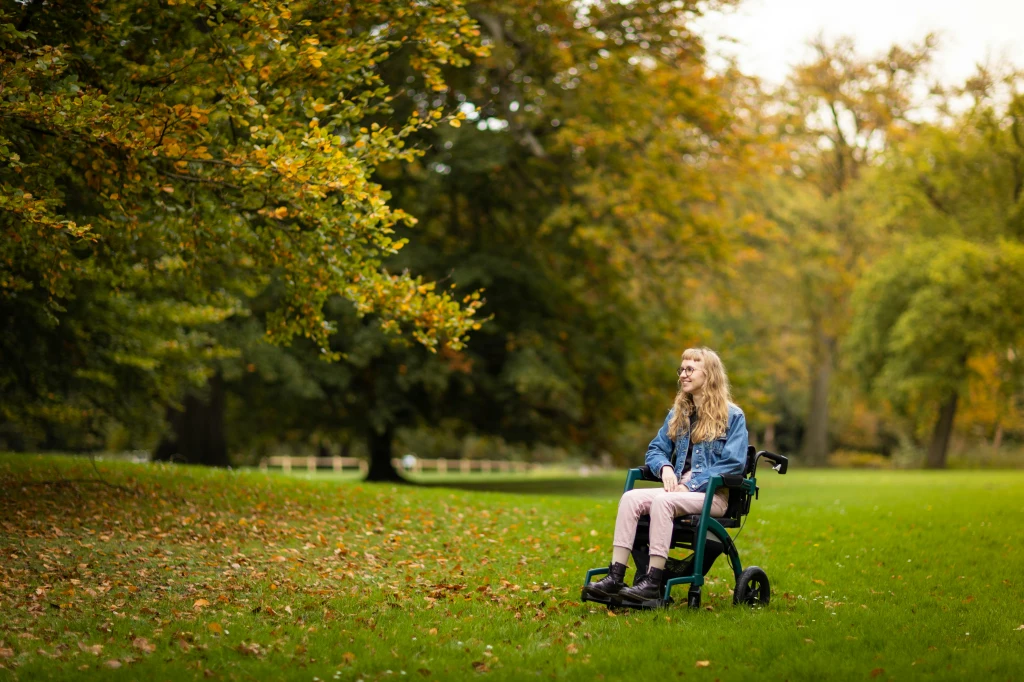Hi, friends. In the first installment of this series, I discussed falling, and today’s topic is fatigue. Have you ever felt plagued by chronic exhaustion due to disability, insomnia, stress, etc? Let’s discuss!
Rest & Energy with Chronic Fatigue
Though I first began to exhibit FA (Friedreich’s Ataxia) symptoms around age 10, fatigue hasn’t been a notable issue for me until the last few years (I’m 25). At the Philadelphia Symposium this year, a presenter had asked patients, “What’s the first thing you would change about your condition given the chance?” The most obvious answer is “having the ability to walk normally again.” Just five years ago, that would have been my request. But the #1 response was actually “having more energy.” I understand that as I age. Right now, the biggest hurdle for my pursuing a career or having a child is not my using a wheelchair but my lack of energy.

If I want to feel fully energized, I need over nine hours of sleep. I average between eight and nine hours a night. Requiring so much rest means I don’t have as much time during the day to accomplish things, but unless I want to feel awful, my sleep is non-negotiable. Even with ample rest the night before, I struggle to get through a day loaded with activities. If we’re out shopping, I’m losing my motivation after a few hours. If I attend church all morning then have an event that afternoon/evening, I’m capooped by the time I get home that night.
Physical & Mental Effects of Fatigue
On a physical level, fatigue is the amplified version of regular tiredness. Has the alarm ever woken you up right in the middle of a dream so that you were dragging worse than usual to get out of bed, and as you walked around, your eyes felt so heavy that you could just shut them for five seconds and fall back asleep? That is how fatigue feels sometimes. More often, though, fatigue is a combination of physical and mental effects for me. The intense exhaustion is perhaps less detrimental than the mood swings.

Fatigue often manifests as a bad mood for me. I become irritable, cranky, impatient, and naggy. Lately, I’ve tried to hold my tongue more and step outside of the situation to assess my feelings. I feel upset–even on the verge of tears. Am I overreacting? Am I acting this way because I’m fatigued? Will I feel embarrassed for acting this way in retrospect? Being able to think rationally while feeling irrational is ideal, but it’s much easier said than done. [I wonder if some family members are reading this and thinking, “Oh, you try NOT to give in to your irritability? Could’ve fooled me.” 😂]

Ironically, exercise is the best way I’ve found to combat fatigue. I always feel mentally and physically pumped up after a workout, and I get a surge of energy. Since I’m a wheelchair user, I often feel sluggish because of my general lack of movement compared to the able-bodied. Perhaps that is why getting my muscles flexing and the blood pumping through my body feels so rejuvenating. Moral of the story–we weren’t meant to be stationary all the time.
Thanks for reading! Do you experience fatigue? How do you manage it? Let me know in the comments.





Leave a comment